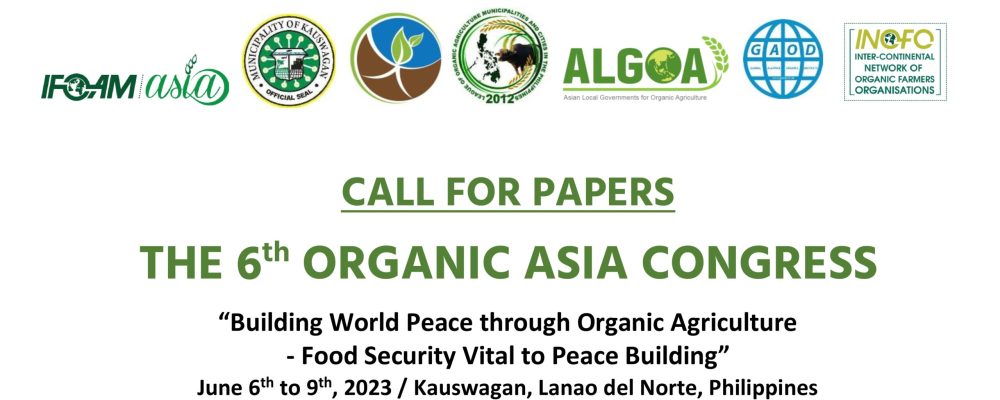Background
Agriculture plays a crucial role in economic development while alleviating poverty and malnutrition as well as preventing environmental destruction and reducing violence. Deprived conditions for agriculture hold grave implications for socio-economic development and sustainable peace in many countries. The escalation or continuation of conflicts worldwide remains the biggest cause of food insecurity. These mainly affect the rural populations, heavily impacting food and agricultural production and smallholder livelihoods. The rehabilitation of agriculture, therefore, has a central role in building and consolidating peace while contributing to food security and rural development.
Food security is a necessary requirement to achieving peace, particularly in countries where agriculture and food production are key to economic and social development. A stable, peaceful environment is the foundation of lasting food security and sustainable livelihoods.
Poor agricultural development and poverty can increase the motivation to join the armed forces to improve one’s standard of living. Sustainable agricultural development and food systems are essential in preventing conflicts and reducing the likelihood of a recurrence of violence. This must rely on the combined efforts of all stakeholders in the value chain, from farmers, input suppliers, processors, traders, distributors, consumers, scientists, and civil society.
For peace-building, the revitalization of the agricultural sector must be supported to increase food production and to generate income opportunities for rural communities, including ex-combatants, women, and young people. Good and stable governance can contribute to the building of sustainable food systems from the local to national to the global level.
Organic agriculture and sustainable food systems can be an effective driver for peace-building activities in conflict and violence-prone areas. It has proven to be effective in increasing and stabilizing yields, particularly in marginal lands. It also provides farmers with a premium return on investment as farmers do not have to invest heavily in chemical fertilizers and pesticides. By reducing the cost of inputs, organic agriculture can help to battle poverty.
Organic agriculture also builds on local management skills and resources, enabling local communities to be food self-sufficient and combat poverty. It also provides diversified, healthy, and nutritious food for farming families and communities. It is a viable option for family farms and smallholders, mostly affected by armed conflict, by supporting food sovereignty, and therefore food security.
Introduction to Kauswagan, Lanao del Norte – “From Arms to Farms: Walking through the Paths of Peace”
Since the 1970s, Kauswagan was the center of decades-long conflict between local insurgencies and the military with the poverty rate at an all-record high of 90%.
In 2010, a new local government leadership stepped in and started to address the root causes of the conflict, which were found to be poverty, food insecurity and inequalities between population groups. The project ‘From Arms to Farms: Walking through the Paths of Peace’, proved very successful in addressing these issues.
As part of the broader Sustainable Integrated Kauswagan Area Development and Peace Agenda (SIKAD PA), ‘From Arms to Farms’ is an agricultural training program that helps former combatants to reintegrate into society while at the same time addressing the food security problem. These combatants agreed to lay down their arms in exchange for farm materials and a decade later, they have become the most exemplary organic farmer leaders in the municipality. The poverty rate has decreased to 20% levels.
The agricultural program covered the areas of demobilization and food security through so-called Peace Path Workshops that sought to restore trust within the different groups of the community, for a durable ending to the conflict to be achieved over time. These workshops were led by the different organizations involved with the project and religious leaders and targeted as many parts of society as possible.
For its efforts, Kauswagan was awarded with the UCLG Peace Prize in October 2016 and an Honorable Mention of the Future Policy Award in 2018.
Important Details of the Paper Call
The 6th OAC will be a physical event. More than two thousand people will attend the events from June 6th
to 9th,2023.
For selected speakers, the hosts will cover the costs of a round-trip economy class flight ticket including domestic flight tickets, 4-day accommodation in Kauswagan, food, and transport within the Philippines. Airport transfers will also be arranged.
Please note that only one speaker per paper will be sponsored.
Guidelines for the Paper Call (Submission Deadline: February 10th, 2023)
Papers submitted must be related to the main theme and should address regional impacts with possible replications in other countries in Asia. Topics relating to the theme will be prioritized.
Papers should stay within the following subthemes:
- Organic agricultural development, innovations, and successful programs for peacebuilding
- Governance and social inclusiveness (with a focus on women, people with disabilities, indigenous peoples, youth, etc.) for sustainable food systems
- Climate change adaptation and natural resource management for food security and peace
- Government policies and initiatives on organic agriculture and food security
- Building economic & social empowerment through rural revitalization
Please submit your abstract to: [email protected] & [email protected] and cc:[email protected]
After submission, you will be acknowledged of the receipt of the abstract within three working days.
Please use the abstract template given. All paper submissions must follow the format provided. Papers which do not comply with the correct format will be rejected upon submission.
Download template at: https://asia.ifoam.bio/the-call-for-papers-for-the-6th-organic-asia-congress-is-now-open/the-6th-oac-paper-call-template/
All submissions are in the English language.
The abstract is between 1,000 – 1,200 words. The abstract will be included in the official OAC Proceedings.
Notification of paper acceptance will be made at the latest by February 20th, 2023.
IMPORTANT NOTICE
Speakers will only be finalized once the VISA to the Philippines has been approved by April 20th, 2023.
If the VISA process is NOT completed by then, the speaking slot will be given to the next speaker on the waitlist.

